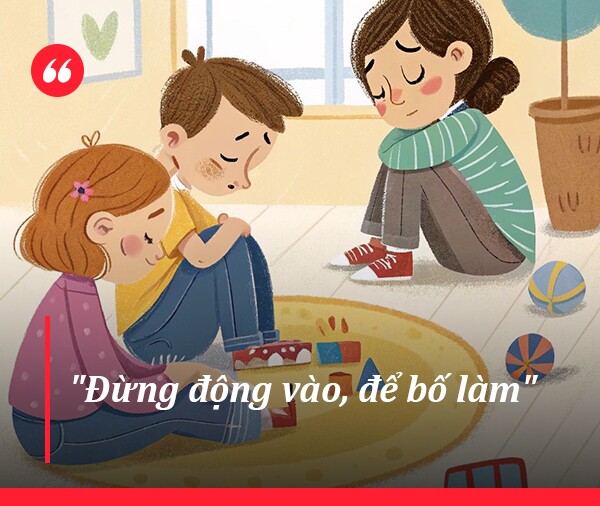While many fathers deeply love their children, some may unintentionally employ harmful parenting methods that hinder their child’s development. The following are four statements commonly made by well-meaning but ineffective fathers that can limit a child’s potential.


Excessive Comparison: “When I was your age, I had it much harder. Stop complaining!”
This scenario is familiar to many. Fathers often use their past struggles to invalidate their children’s current emotions, saying things like, “I had it much harder when I was your age. Stop complaining!” However, such comparisons can be emotionally damaging and create a barrier between parents and their children.
When parents use their own experiences to minimize their child’s struggles, the child feels that their emotions are not taken seriously. This can lead to children suppressing their thoughts and true feelings. They may believe that expressing their emotions is unacceptable and develop a tendency to be reluctant in sharing their feelings.

Children need to know that their emotions are valid and important, regardless of whether their parents have experienced similar situations. Help them understand that challenges are a normal part of life and worth discussing.
Instead of dismissing their feelings, parents can listen and empathize. A simple question like, “How do you feel about this?” can open up a deeper conversation, making the child feel understood and accepted.

Avoiding Responsibility: “I’m busy, ask your mother.”
The absence of a father figure in the family is considered a root cause of many difficulties in a child’s development. A long-term study published in the American Journal of Orthopsychiatry found that children from families with less father involvement are more likely to face social, emotional, and behavioral problems.
Specifically, boys often struggle with developing a healthy sense of gender identity and behavioral patterns due to the lack of effective guidance from their fathers.

A 2023 survey by the China Youth Research Center also revealed that in 80% of families with teenagers experiencing psychological issues, the main cause was attributed to the lack of paternal involvement.
When a father is absent, it means the child is exposed to a single method of education and value system, which can be detrimental to their healthy development.

Material Compensation for Emotional Neglect: “We have money; I’ll make it up to you.”
Mr. Zhang from Sichuan, China, is a successful businessman, but his relationship with his 17-year-old daughter is strained. Whenever she wants to confide in him, he uses work as an excuse to avoid responsibility. He then tries to make amends by giving her expensive gifts on her birthday or when she gets good grades.
“I’ve provided her with the best living conditions and the most expensive school. Isn’t that enough?” Mr. Zhang asked the psychologist in confusion. “Why does she keep saying I don’t understand her?”

Using material wealth to compensate for emotional absence is a common issue among modern fathers. Most believe that providing financial stability fulfills their paternal duty, failing to realize that what their children truly need is a meaningful relationship and emotional support.
Research has shown that children who primarily receive material satisfaction instead of emotional fulfillment are more likely to develop issues such as selfishness and a lack of empathy as they grow up. This can hinder their social development and career choices.

Unintentionally Hindering Self-Reliance: “Don’t touch it; let me do it.”
On a weekend, Mr. Chen and his 8-year-old son, Xiao Hao, were playing in the flower garden. Xiao Hao was learning to tie his shoelaces, and although he was clumsy, he was trying hard. However, after observing for a while, Mr. Chen lost patience, took the shoe, and said, “You’re too slow! Let me help you do it properly.”
A common mistake made by many fathers is doing everything for their children, gradually taking away their opportunities to make mistakes and learn from them.

According to the theory of developmental psychology by American educational psychologist Carol Dweck, the sense of accomplishment children feel when they overcome challenges is an important foundation for building self-confidence and perseverance. When parents do everything for their children, they are actually hindering their chance to develop independence.
What’s more concerning is that this over-involvement is often accompanied by impatience and perfectionism, leading to confusion in children because they feel they “can’t do it” or “can’t do it well.” Over time, they may lose the courage to try new things and become dependent and passive.
































